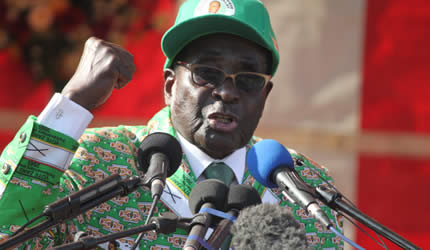Sadc’s new chief ready to take integration forward

THE Southern African Development Community (Sadc) has a new Executive Secretary, Dr Stergomena L. Tax from the United Republic of Tanzania. Tax, who becomes the first woman to head the regional bloc, she replaces out-goingexecutive secretary Dr. Tomaz Augusto Salomão of Mozambique who has served two four-year terms as Sadc executive secretary.
Tax is no stranger to regional integration, which is the cornerstone of the development agenda for Sadc.
Prior to her appointment as executive secretary at the 33rd SADC Summit held in Malawi in August, Tax has been permanent secretary in the Tanzanian Ministry of East African Cooperation since 2008.
During her tenure, she played a crucial role in strengthening intra-regional trade and cooperation among the five partner states of the East African Community.
These are the same duties that she will be expected to perform in her new role at the Sadc Secretariat as southern Africa moves towards deeper regional integration.
“My goal is to continue strengthening regional integration and cooperation that has existed in Sadc since its formation,” Tax told journalists in Tanzania.
She said her main focus will be on infrastructure development since “this is critical in expanding the market and the growth of the economies of the member states.”
Tax, who becomes the first women to assume the post of Sadc executive secretary, said women are as capable as their male counterparts to perform any duties.
“Wherever I go, I look at myself as a human being, an African and embark on my responsibilities,” she said, adding that “performance is key and not gender.”
True to her assertion, a number of women in southern Africa and the rest of the African continent are performing well in key decision-making positions.
These include the first woman president in southern Africa, Joyce Banda of Malawi, also the first woman to become chairperson of Sadc.
Among others are the African Union chairperson, Dr. Nkosazana Dlamini-Zuma, and the new head of UN Women, Phumzile Mlambo-Ngcuka, both former cabinet ministers in the South African government.
Other Tanzanian women have occupied top posts in the UN system including Deputy Secretary-General and Director of UN Habitat, and another Tanzanian woman was the first President of the Pan-African Parliament.
Tax, who is PhD graduate in International Development from the University of Tsukuba in Japan, says southern Africa and the rest of Africa have a lot to gain from partnerships with other emerging economies.
Sadc has cordial relations with emerging economies such as the BRICS group comprising Brazil, Russia, India and China, as well as South Africa, which is also a Sadc member state.
With respect to the tripartite arrangement involving the Common Market for Eastern and Southern Africa (Comesa) and the East African Community (EAC), she said Sadc is committed to establishing an enlarged market covering 26 countries in eastern and southern Africa.
“Since Sadc has 15 countries, EAC 5, and Comesa 19, the integration will increase the size of consumerism in the region, which makes up almost 50 percent of the African continent,” said Tax, who is also a former permanent secretary in the Ministry of Industry and Trade.
Some countries in Sadc also belong to both Comesa or EAC and thus the tripartite arrangement seeks to do away with the challenge of overlapping membership.
Once operational, the integrated market with a combined population of almost 600 million people and a total Gross Domestic Product (GDP) of about US$1 trillion, will boost regional integration through improved investment flows and enhanced competition, transforming eastern and southern Africa into one of the most lucrative regions on the continent.
On the political situation in the region, Tax says peace and stability are critical ingredients for socio-economic growth in southern Africa.
She said it is pleasing to note that there is general stability in the region.
“The political stalemate in Madagascar has been resolved amicably, Zimbabwe held its elections peacefully and the instability in the Democratic Republic of Congo is improving,” she said.
Tax was elected at the Sadc Summit ahead of Peter Sinon who is Seychelles Minister for Investment, Natural Resources and Industry.
She has several years of experience in public service, and served as chief executive officer of the Business Environment Strengthening Programme for Tanzania (BEST) that aimed at reforming the business environment in the country.
The programme, under the President’s Office, was designed to improve the regulatory framework for business in Tanzania.
In 2006, Tax was appointed deputy permanent secretary at the Ministry of Economic Planning and Empowerment, before becoming permanent secretary in the Ministry of Trade and Industry.
She has also worked in the Ministry of Finance as well as the Economic and Social Research Foundation in Tanzania.
In his outgoing speech, Salomão paid tribute to Sadc member states for the support rendered to him, urging them to extend similar support to the incoming executive secretary.
“I wish to express my profound and sincere gratitude to you, your Excellencies for the opportunity, honour and privilege granted to me to steer the Sadc Secretariat. With your support I did my best to deliver on my mandate,” he said.
“I urge that the same support rendered to me by all of you during my tenure in office be extended to the incoming executive secretary.”
The appointment of the deputy executive secretary for regional integration was postponed to October.
The new deputy will replace Angolan engineer João Caholo who has also been with the secretariat for two four-year terms and had previously served Sadc in junior positions. –sardc.net









Comments